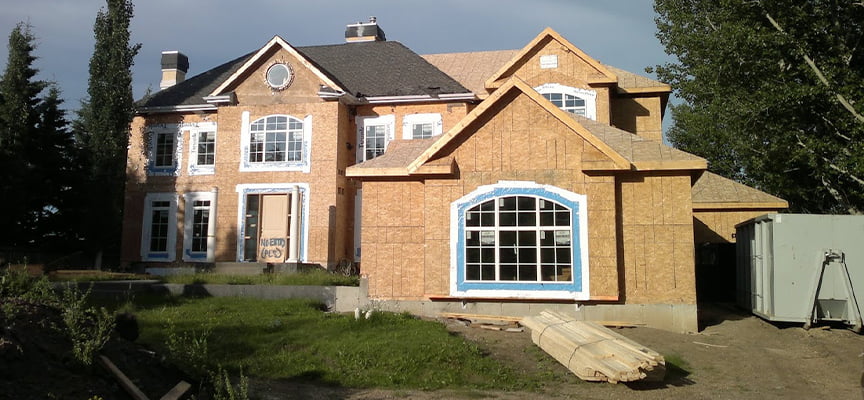
Building a new home is an exciting and rewarding experience, but it also comes with a lot of responsibility and challenges. One of the most important aspects of the home building process is ensuring that the construction meets the quality standards and safety codes that you expect and deserve.
The complexity of the process can be overwhelming, especially for those who don’t have extensive experience in construction. Overlooking critical checkpoints could mean finding problems when it’s too late or expensive to fix them.
The best way to navigate these hurdles is through comprehensive understanding and preparedness. Knowing what to inspect during the residential construction process and when to do it can save you time, money, and stress. As an expert residential contractor, we will provide you with the detailed insights you need to ensure your residential construction project is up to code.
So, let’s get started.
Preparing For The Inspection Process
Before you start inspecting your new home, there are some steps you need to take to prepare yourself and ensure a smooth and effective inspection process. These steps include:
Reviewing Your Contract And Plans
Make sure you have a clear understanding of what your builder has agreed to deliver and what your responsibilities are. Review the plans and specifications of your new home and make sure they are accurate and complete. If you have any questions or concerns, clarify them with your builder before the construction begins.
Hiring A Professional Inspector
While you can inspect your new home yourself, it’s highly recommended that you hire a professional inspector to assist you. A professional inspector has the expertise and experience to spot any issues or defects in residential construction that you might miss or overlook.
They can also provide you with a detailed and objective report of their findings and recommendations. Make sure you choose a reputable and qualified inspector who is familiar with the local building codes and standards.
Scheduling The Inspections
Depending on the size and complexity of your new home, you may need to inspect it several times during the construction process. Typically, there are four main stages of inspection: foundation, framing, pre-drywall, and final.
You should coordinate with your builder and inspector to schedule the inspections at the appropriate times and ensure that they don’t interfere with the construction schedule or progress.
Preparing A Checklist
To make sure you don’t miss anything during the inspection process, you should prepare a checklist of the items and areas that you want to inspect at each stage. You can use a standard checklist or customize your own based on your contract and plans.
Here’s what you should inspect during each step of residential construction.
Foundation Fundamentals
The foundation is more than concrete and steel; it’s the bedrock of your home’s stability. When inspecting the foundation, ensure it’s solid, level, and free of cracks. These seemingly small imperfections can grow into significant structural issues over time.
Look out for signs of water damage, as this can compromise the integrity of the foundation. If you notice any concerns, don’t hesitate to consult with a professional. A strong and secure foundation is the first step in creating a home that lasts for generations.
Framing And Roofing
The framing of your home is its skeleton, providing support and shape. During the construction process, inspect the framing for sturdiness and precision. Check for proper alignment and the use of high-quality materials. A well-framed structure ensures the longevity of your dwelling.
Windows And Doors
Windows and doors are the gateways to your home, both aesthetically and functionally. When inspecting windows, check for proper sealing and insulation. Well-sealed windows contribute to energy efficiency by keeping the elements outside.
Ensure doors open and close smoothly, checking for any drafts or gaps. Well-fitted openings not only enhance security but also contribute to the overall comfort of your home.
Plumbing, Electrical System, And Insulation
Plumbing is the circulatory system of your home, and during construction, it requires meticulous attention. Likewise, a flawless electrical system and insulation are non-negotiable. A well-planned and executed plumbing and electrical system contributes to the overall efficiency and functionality of your home.
Also, check that the ducts are properly sealed and insulated and that they don’t leak or interfere with the framing or plumbing system.
Inspecting Drywall
Inspect walls and ceilings for cracks, uneven surfaces, or signs of moisture. A smooth drywall finish sets the stage for a flawless interior. Properly installed and finished drywall provides the ideal backdrop for your furnishings and decor. Addressing any issues during construction ensures that your walls and ceilings will remain beautiful for years to come.
Final Inspection
This is the stage when the interior and exterior finishes are installed, and the home is ready for occupancy. Check that the drywall, flooring, cabinets, countertops, and appliances are properly installed and aligned and that they match the quality and style of the plans.
During the final walkthrough, you should test all the features and systems of your new home and make sure they work as expected.
About Us
Eurobuild is a leading residential construction company in Canada that specializes in custom homes, renovations, and additions. We have over 20 years of experience in the industry and a reputation for excellence and quality. We work with you from the initial design to the final inspection to ensure that your new home meets your needs and exceeds your expectations.
Contact us today to get started on your dream home.

